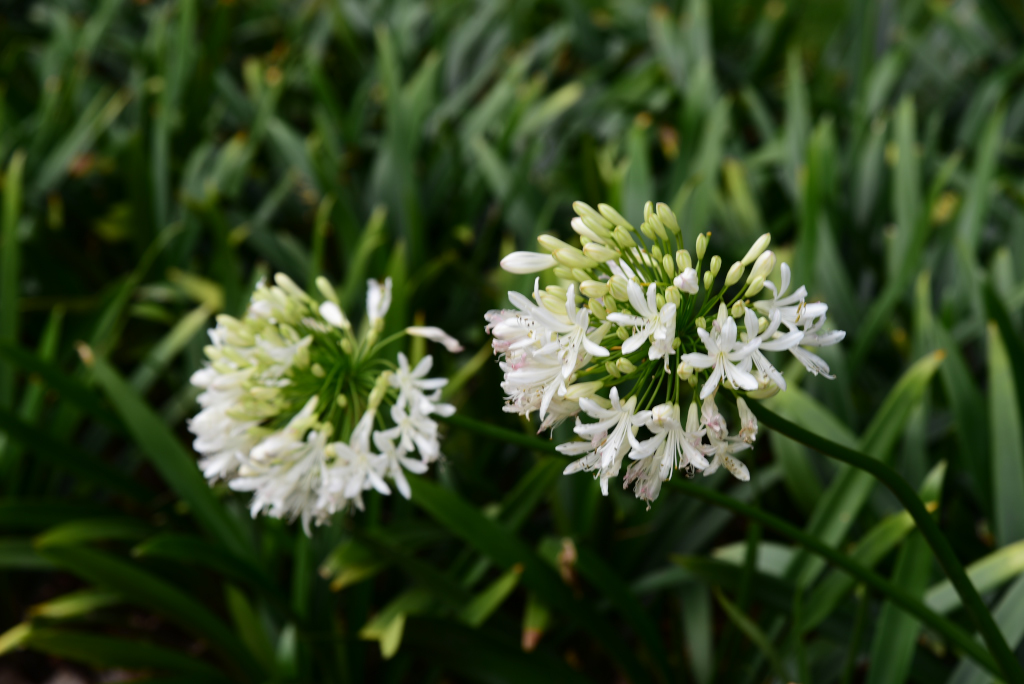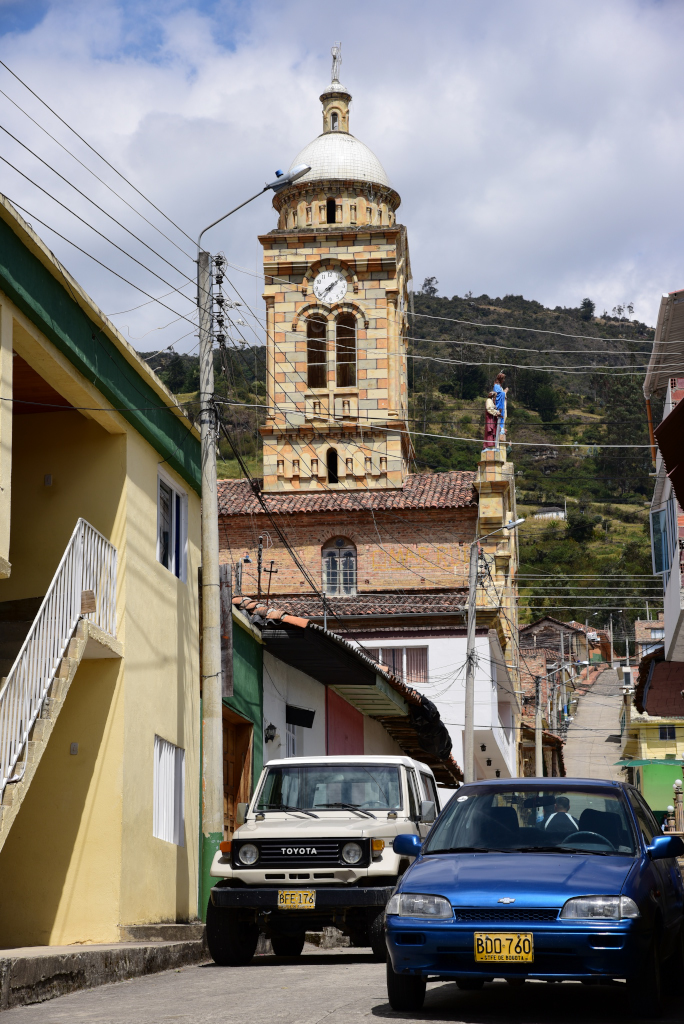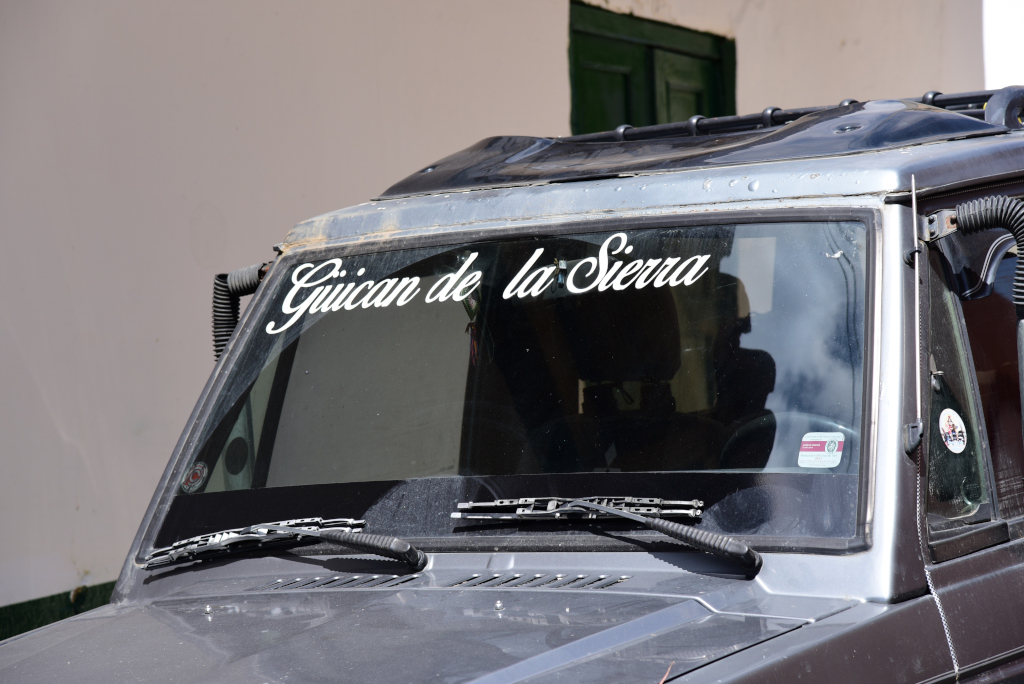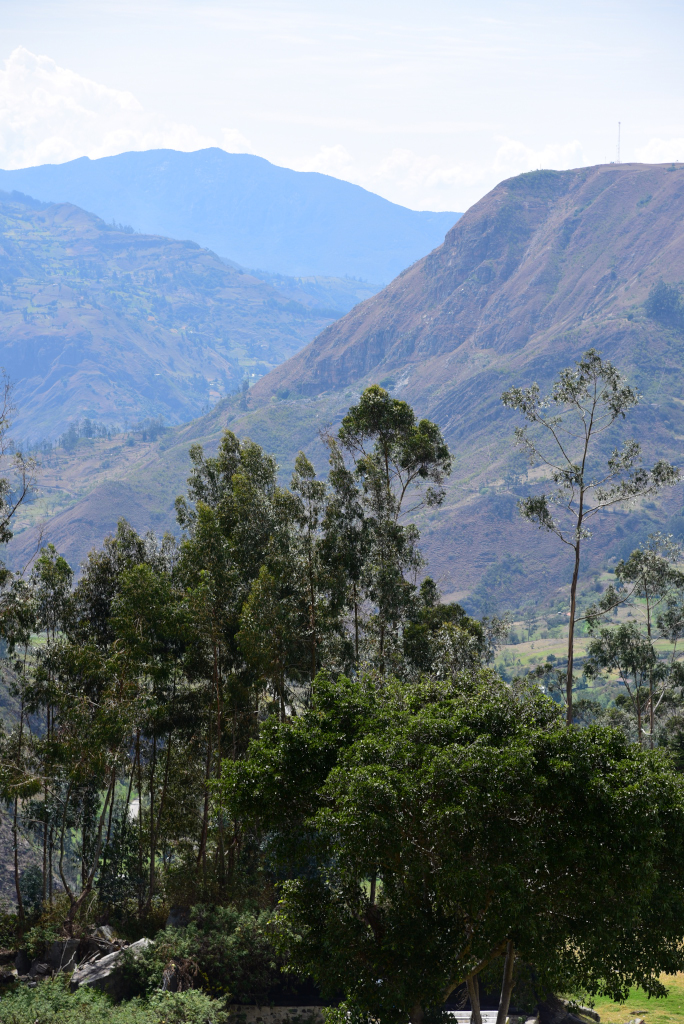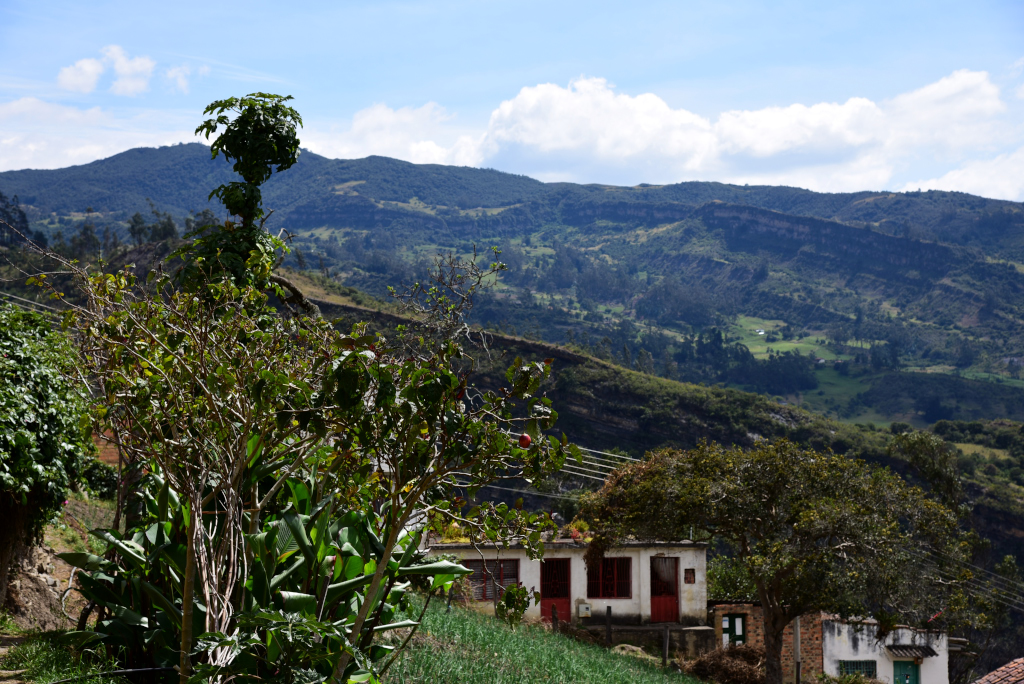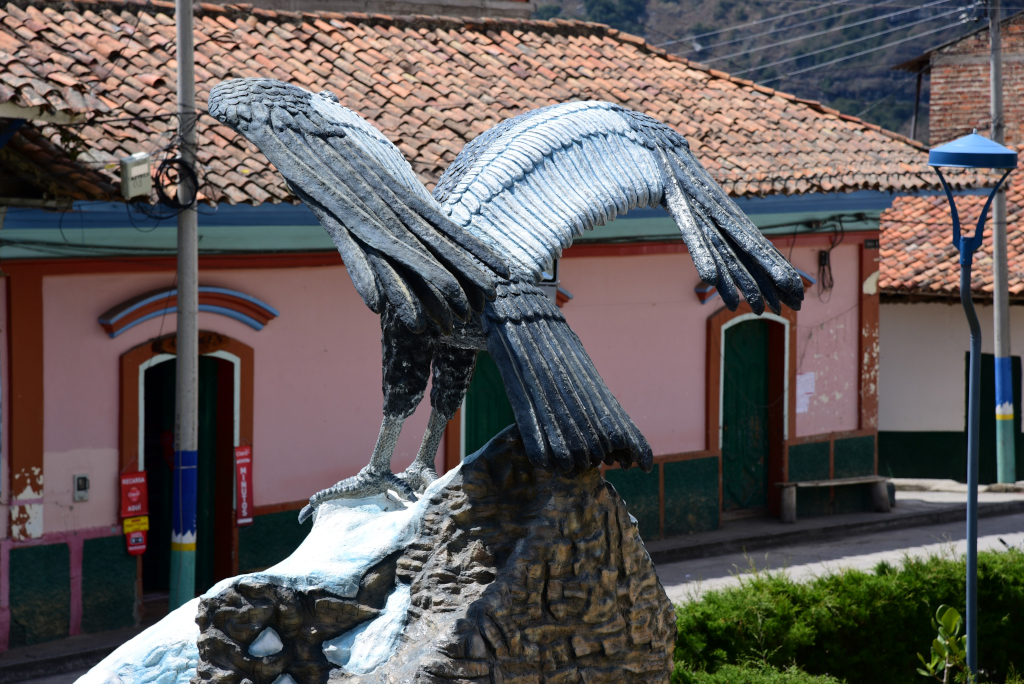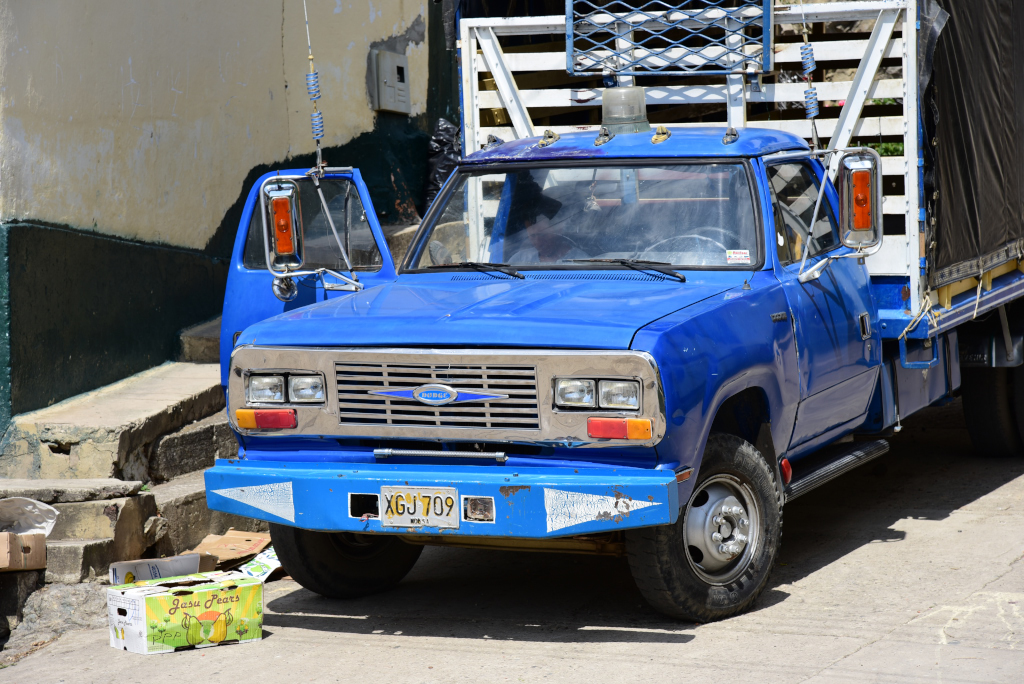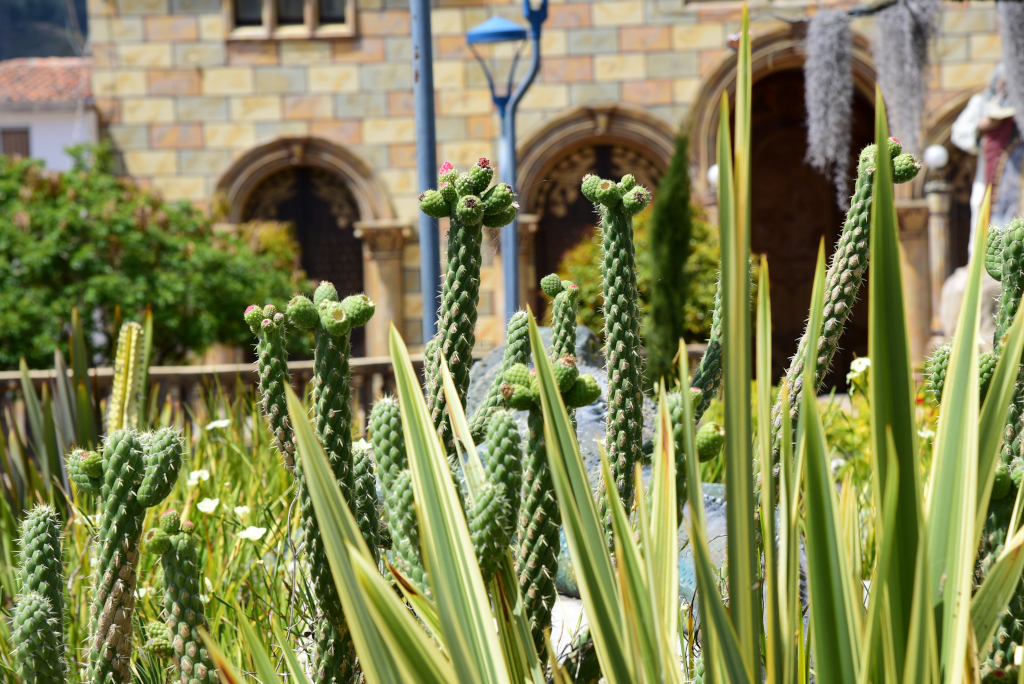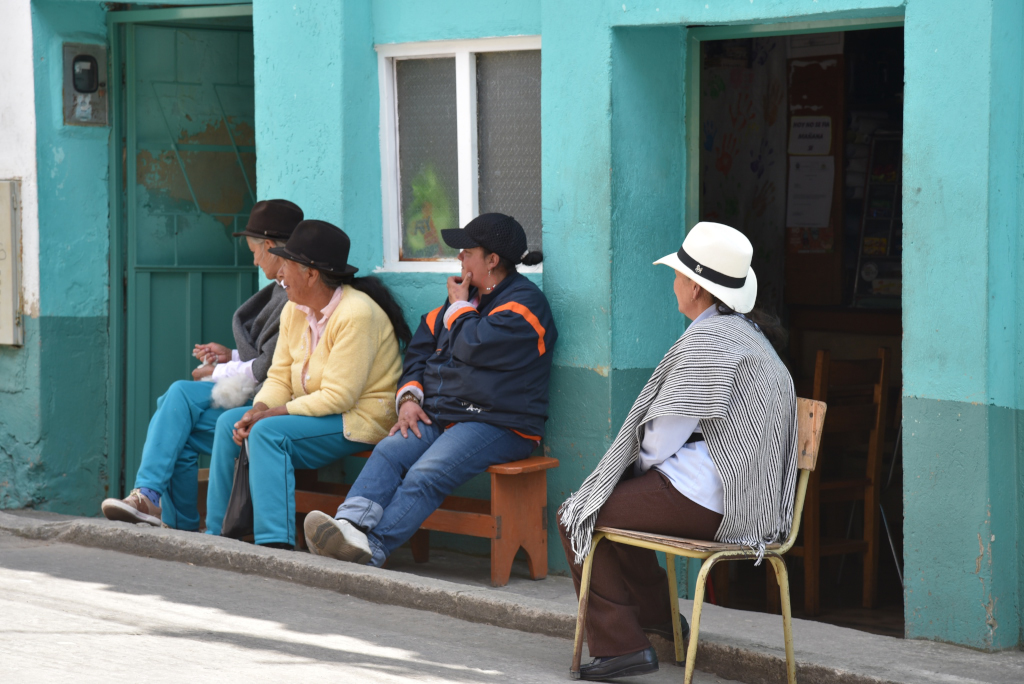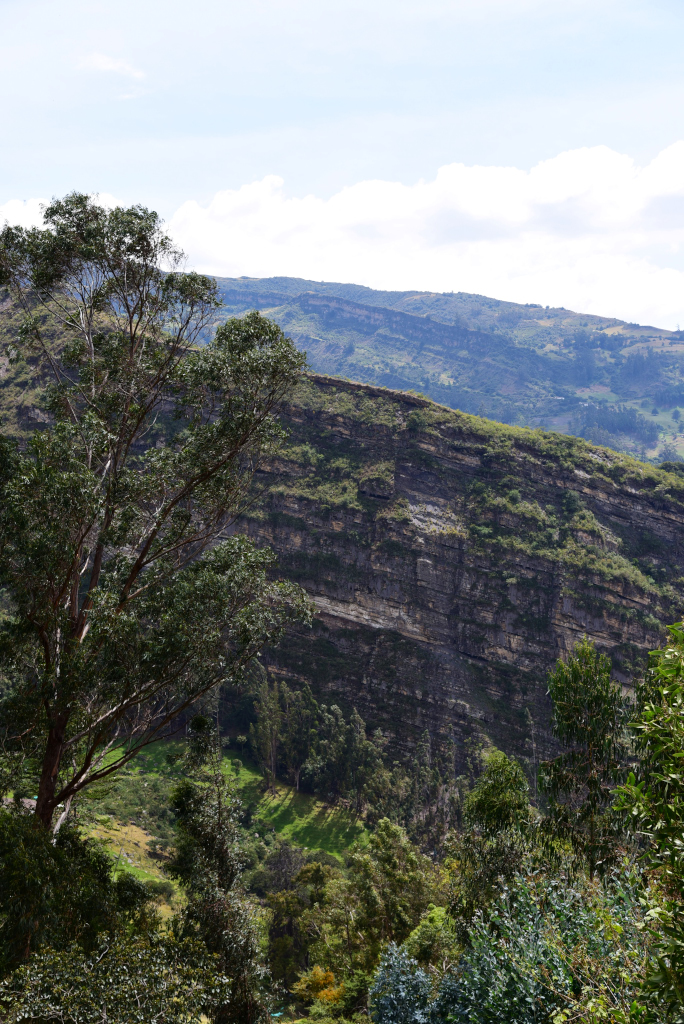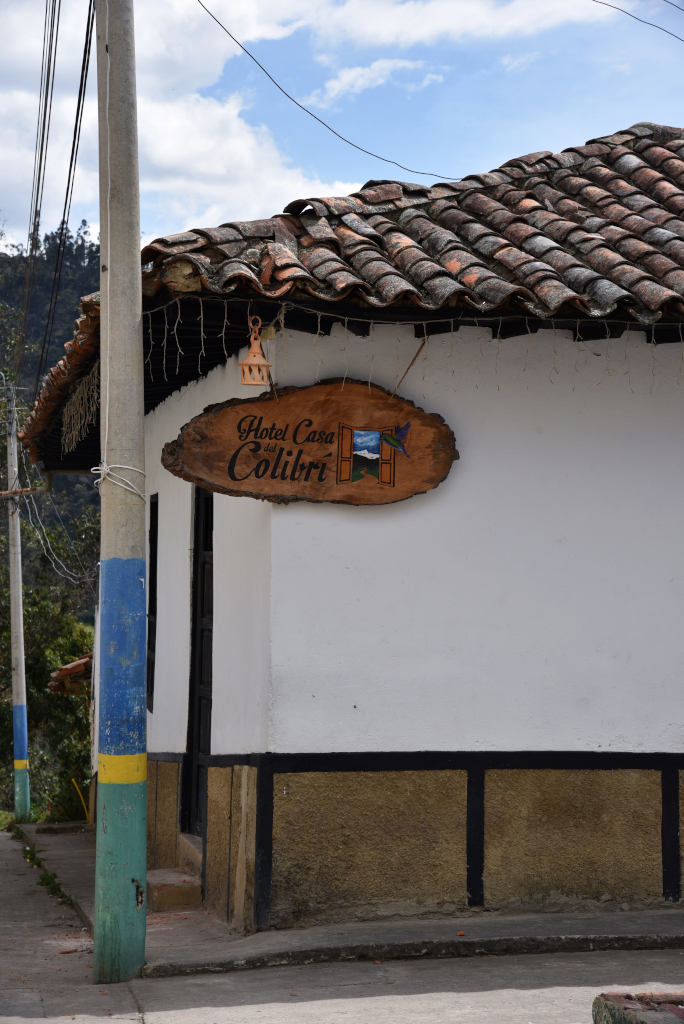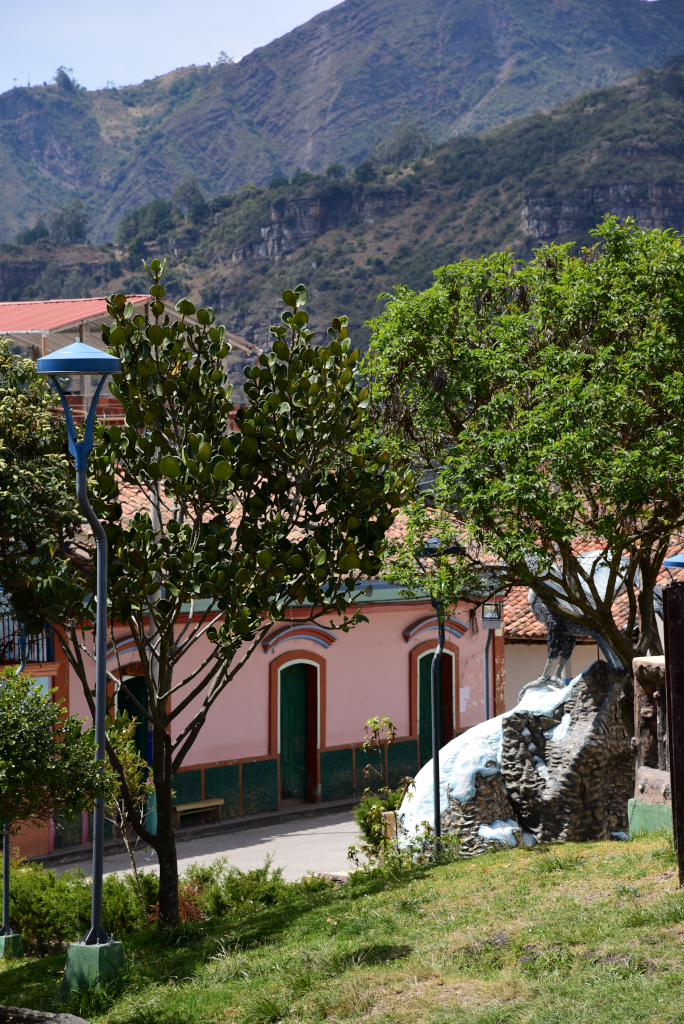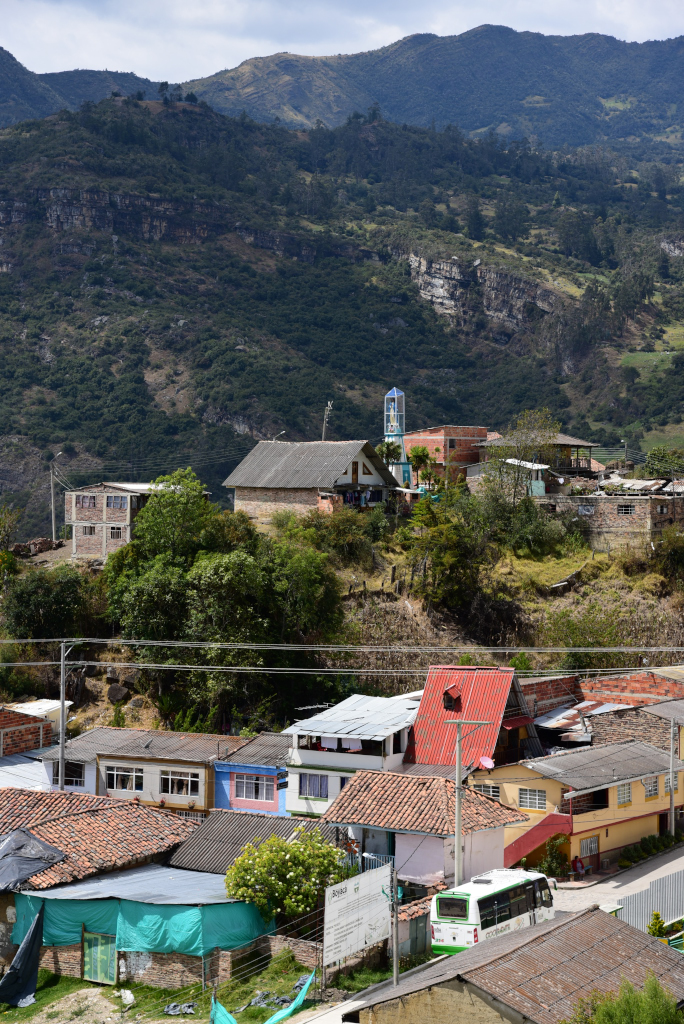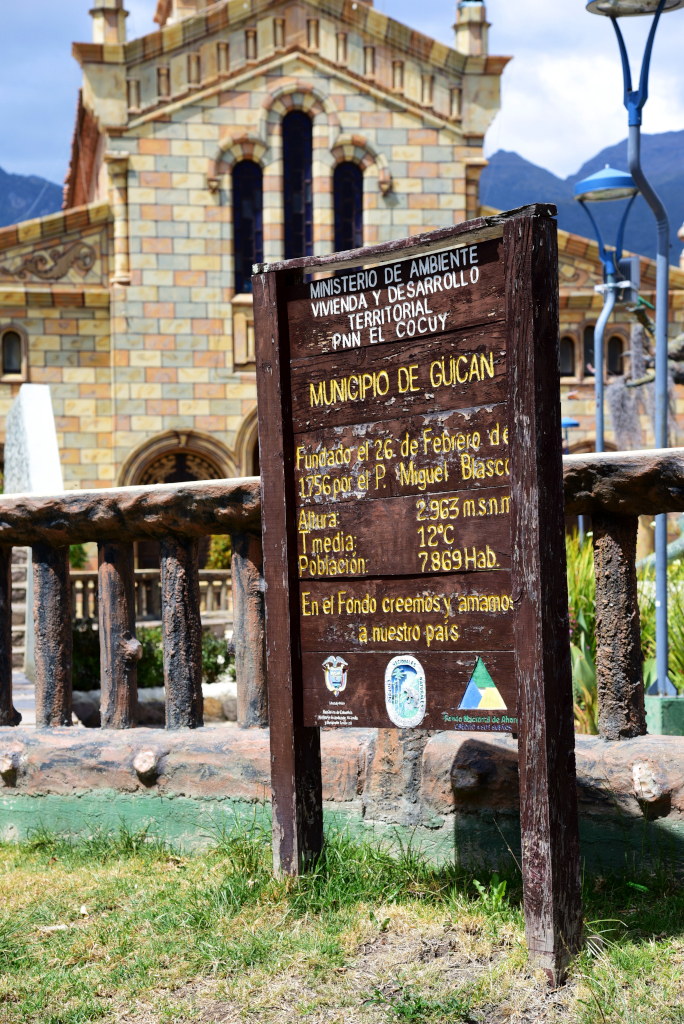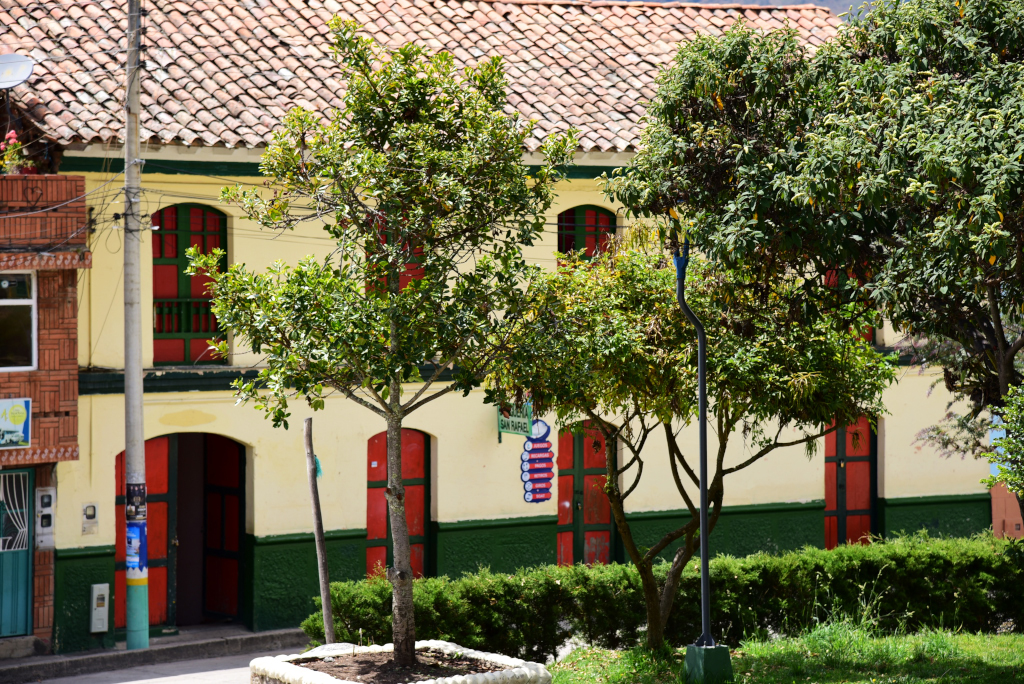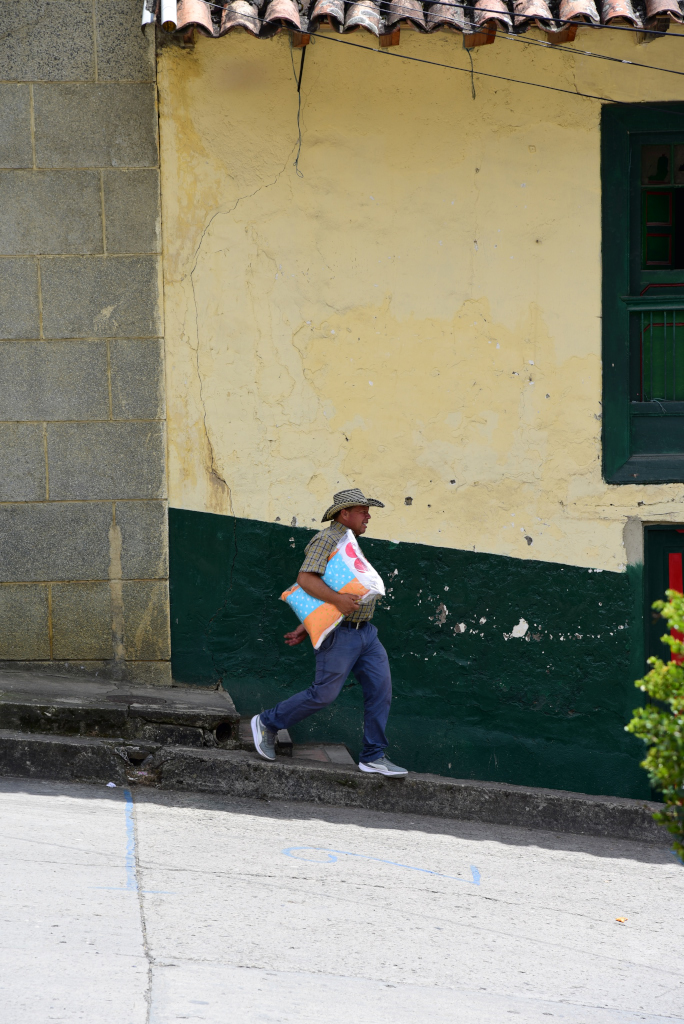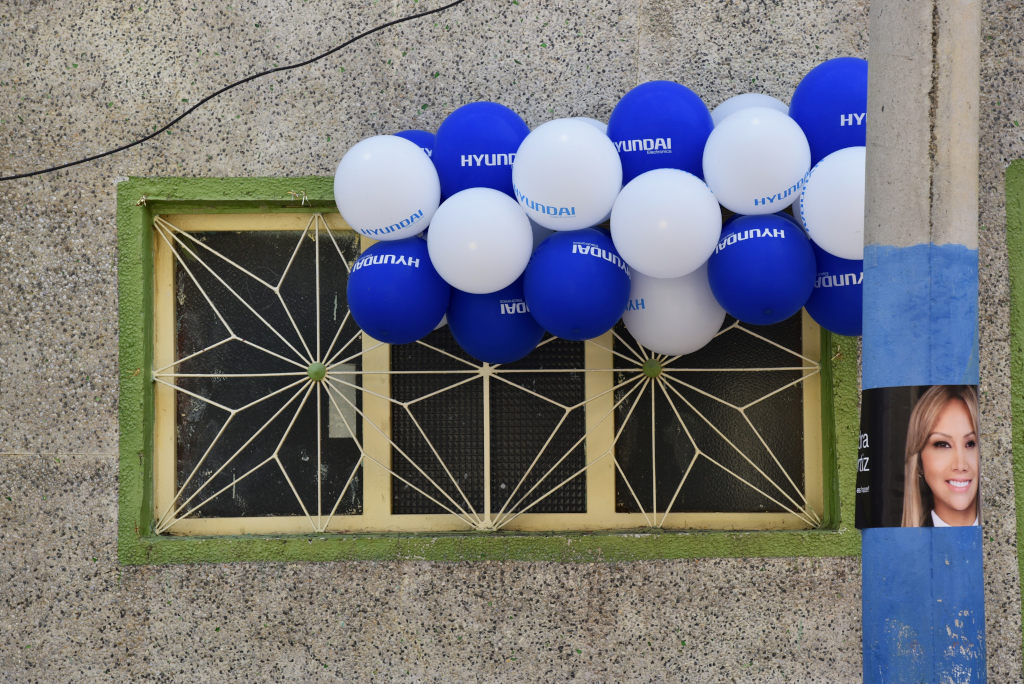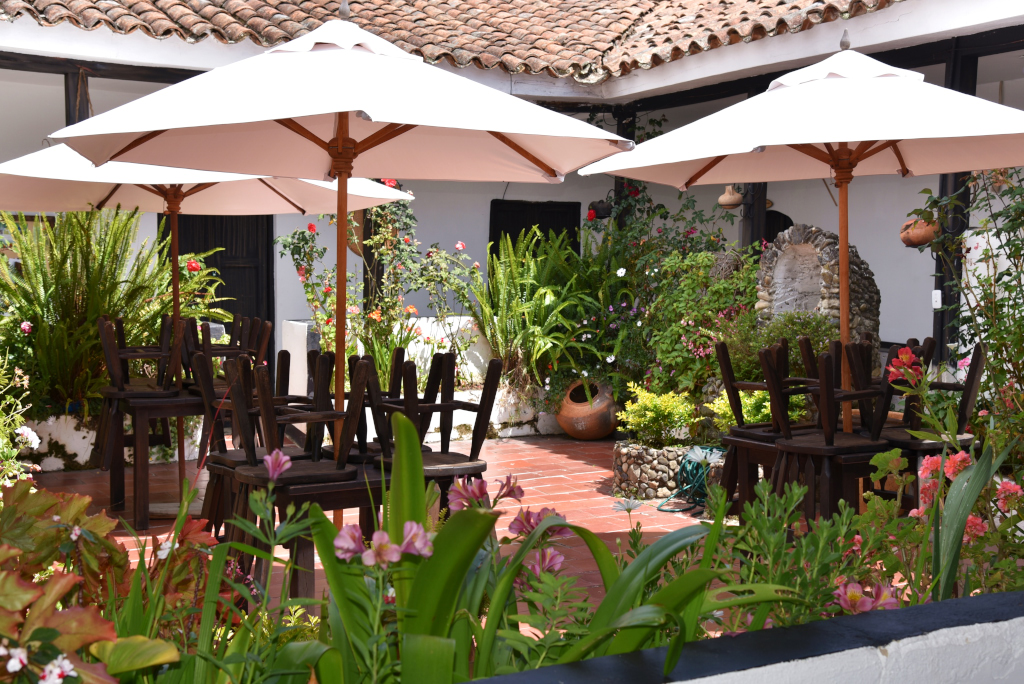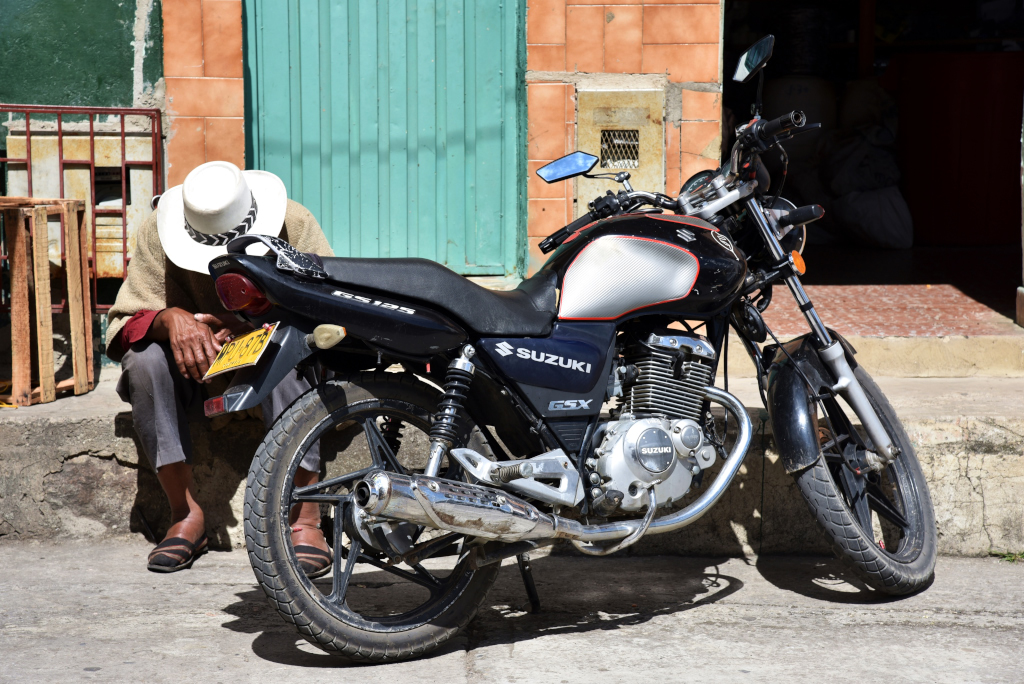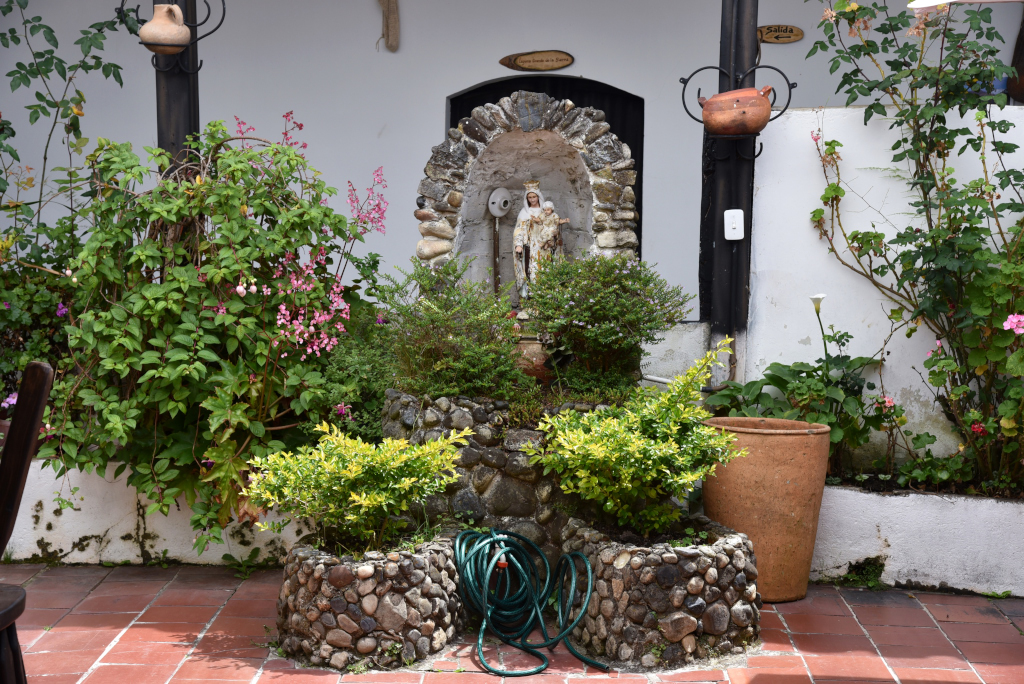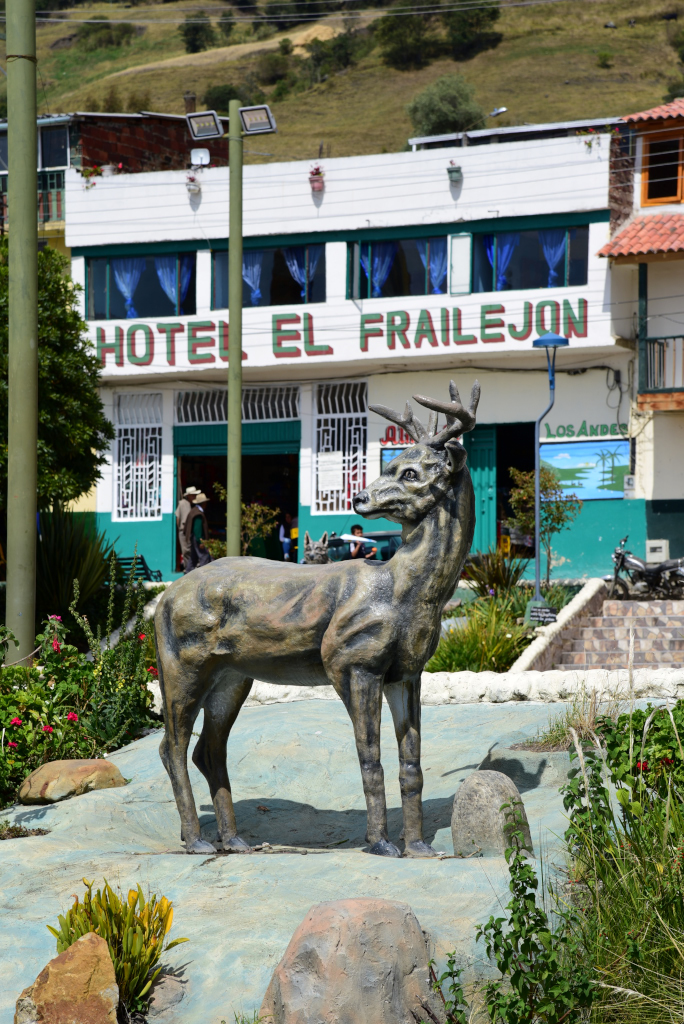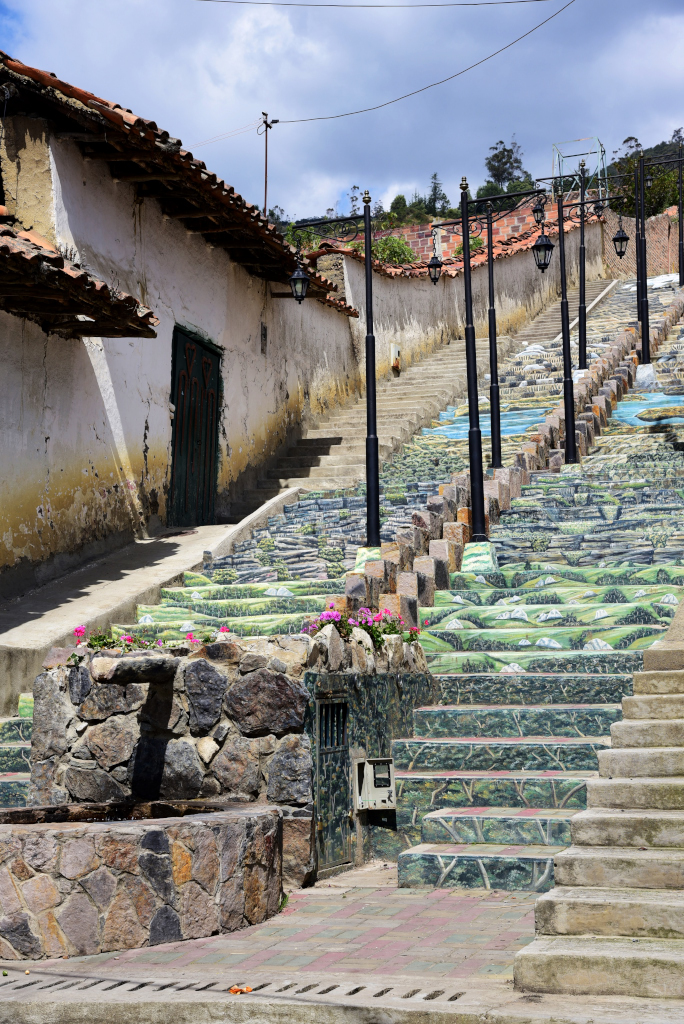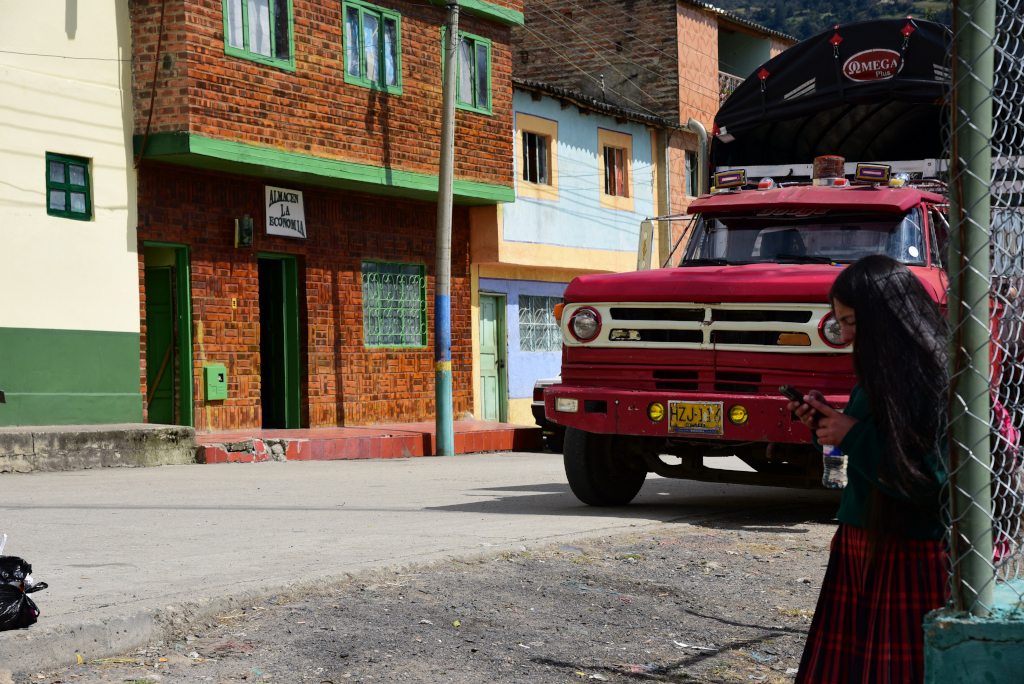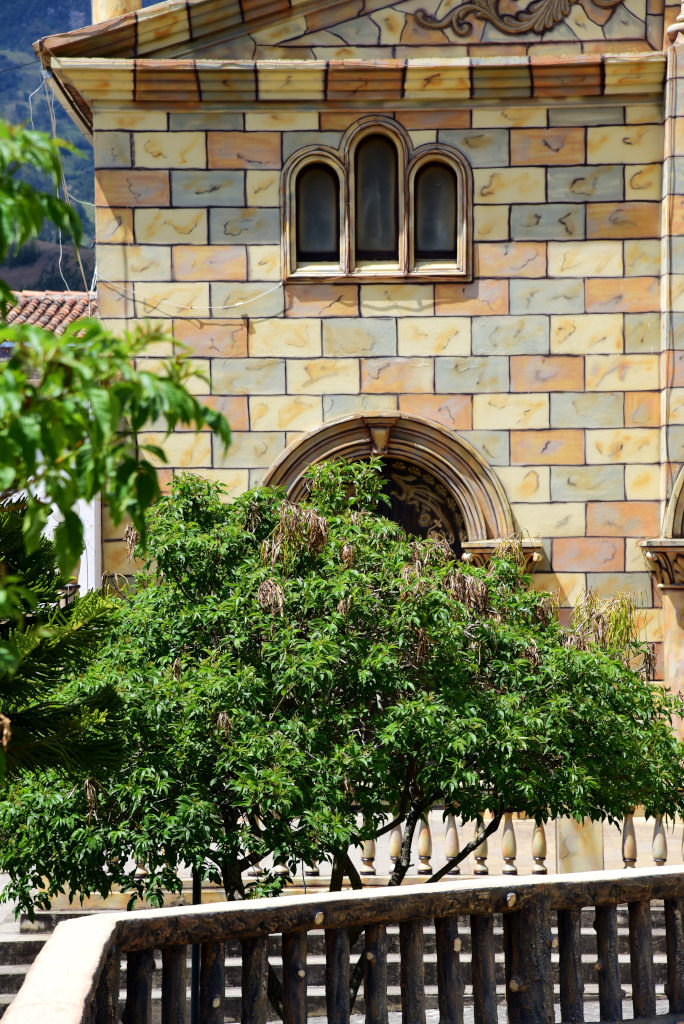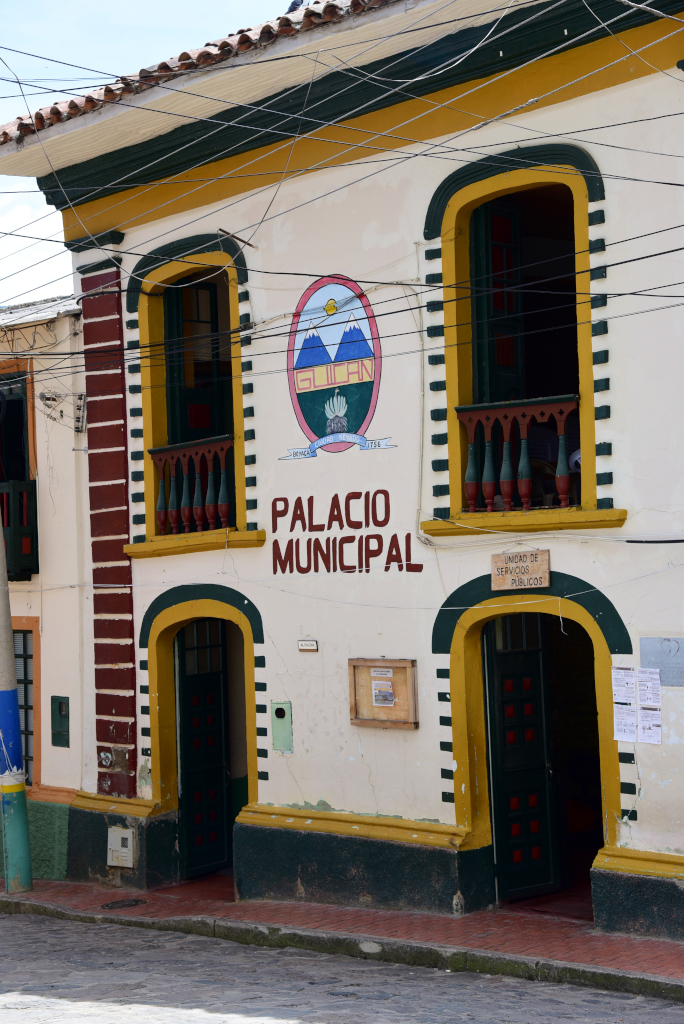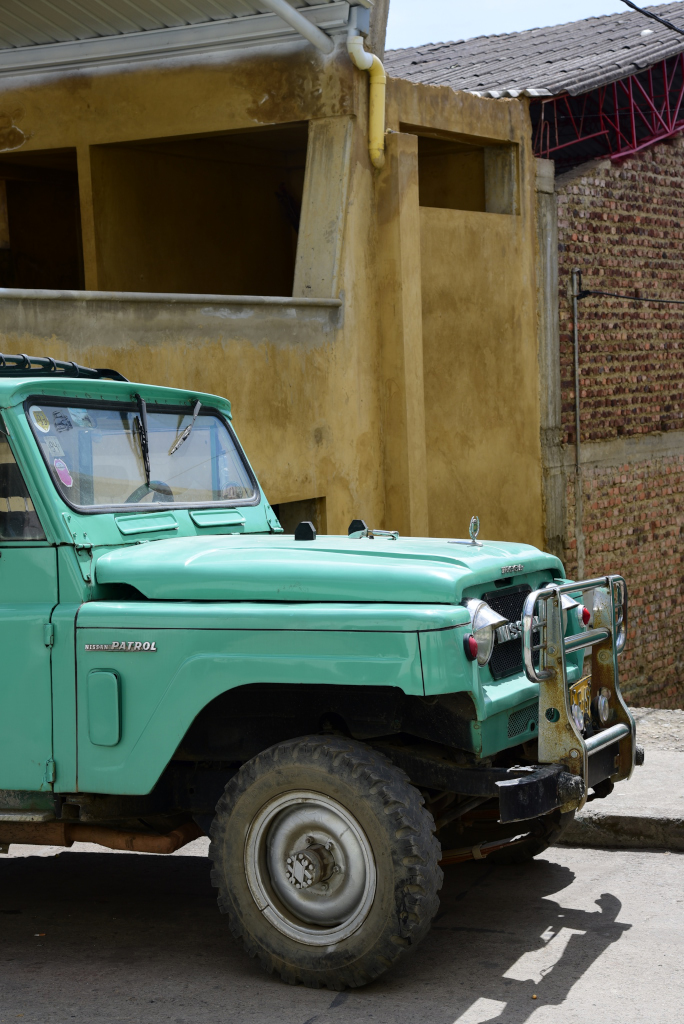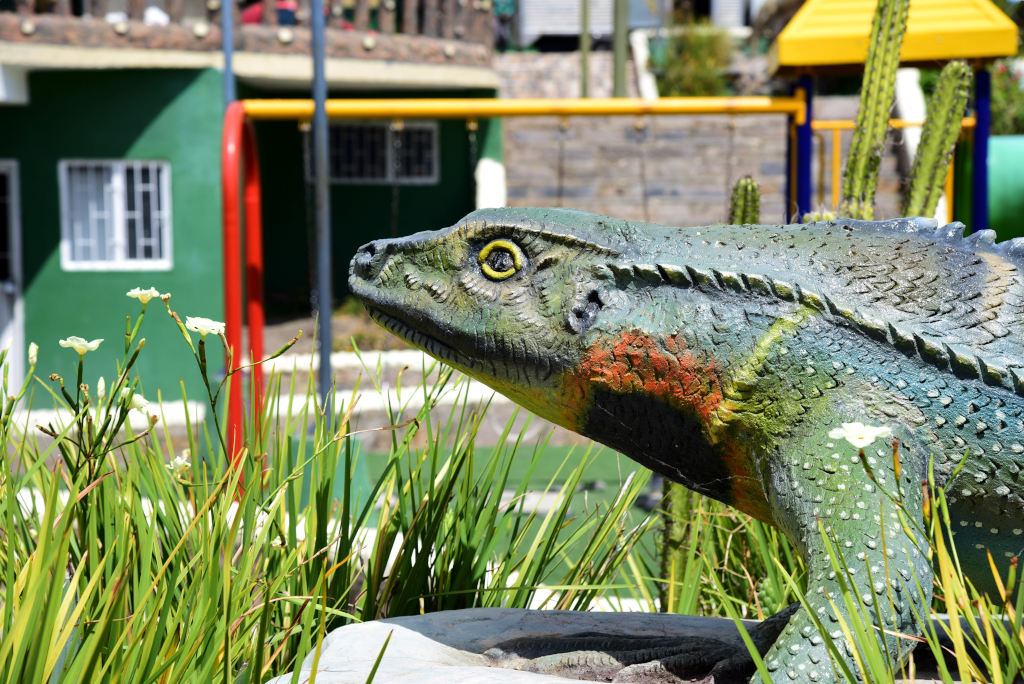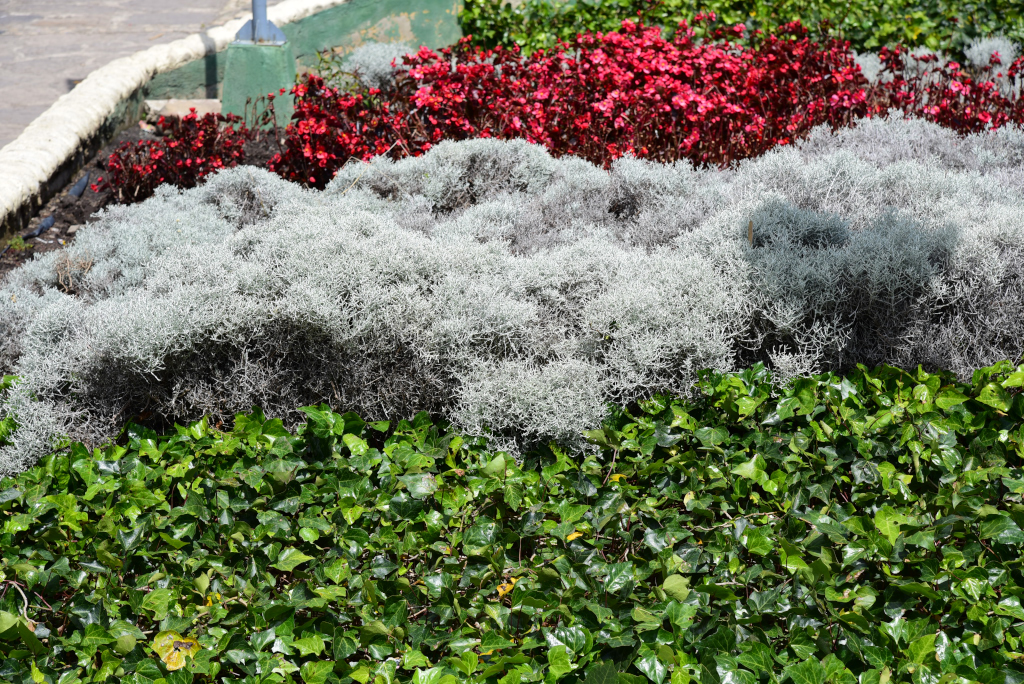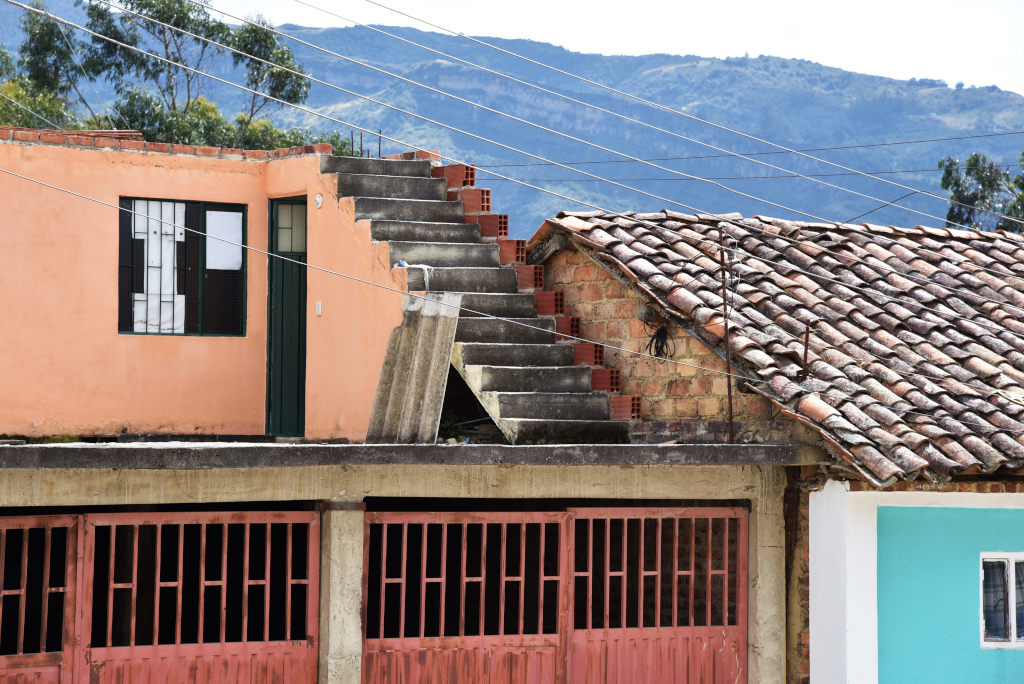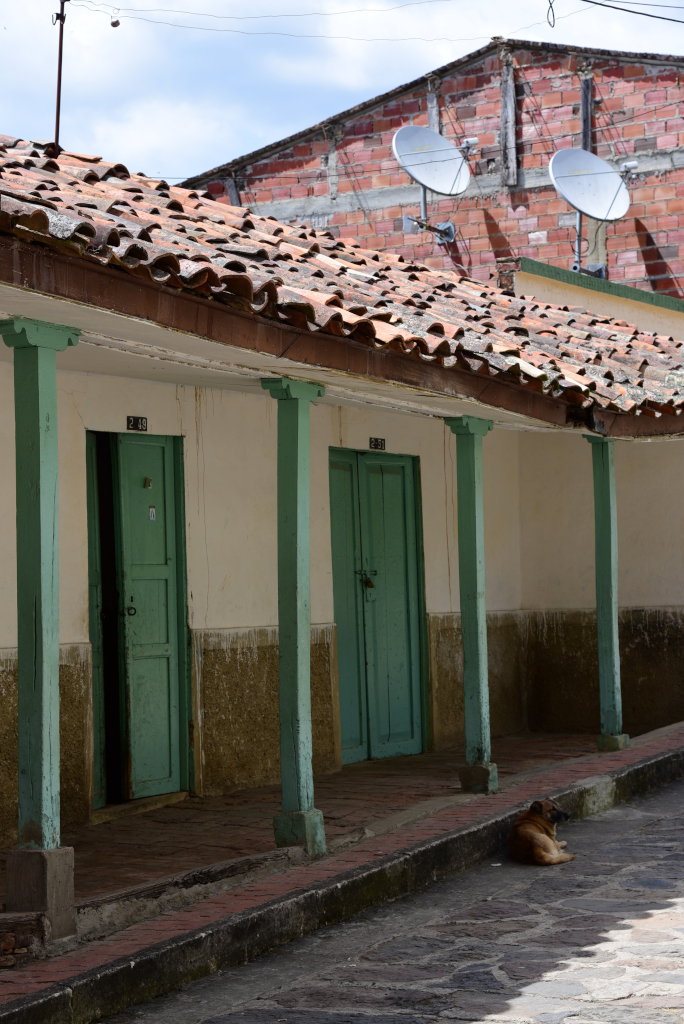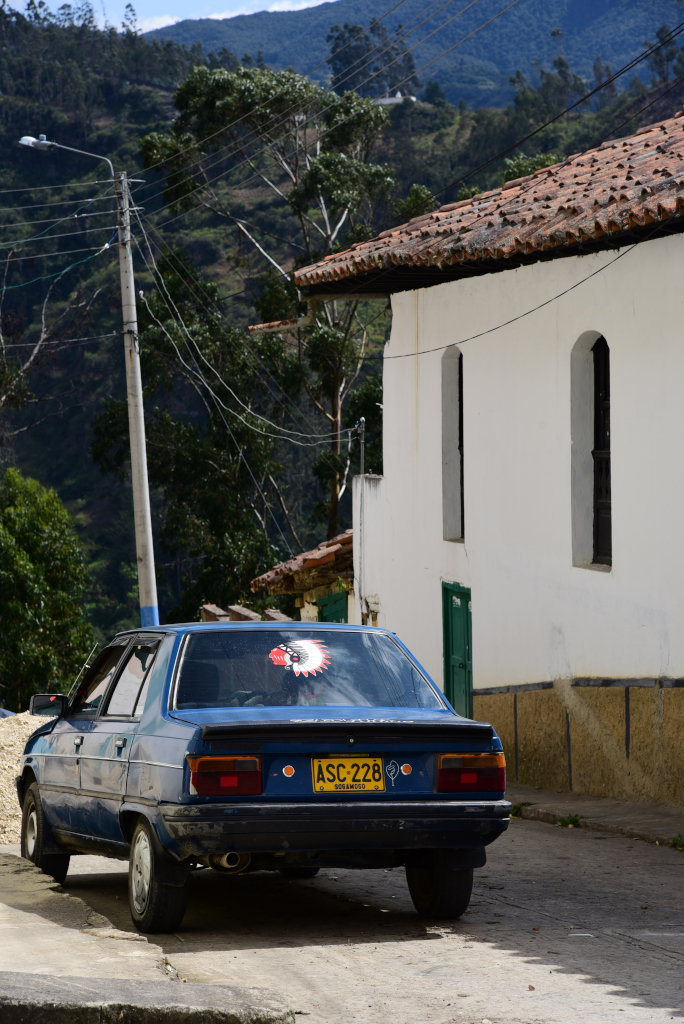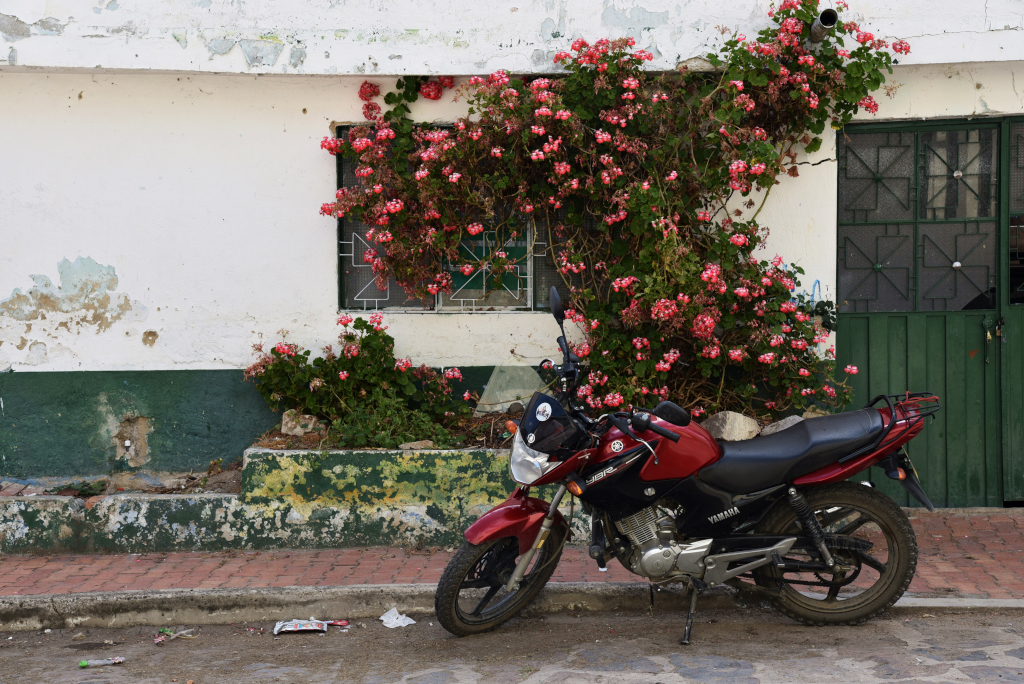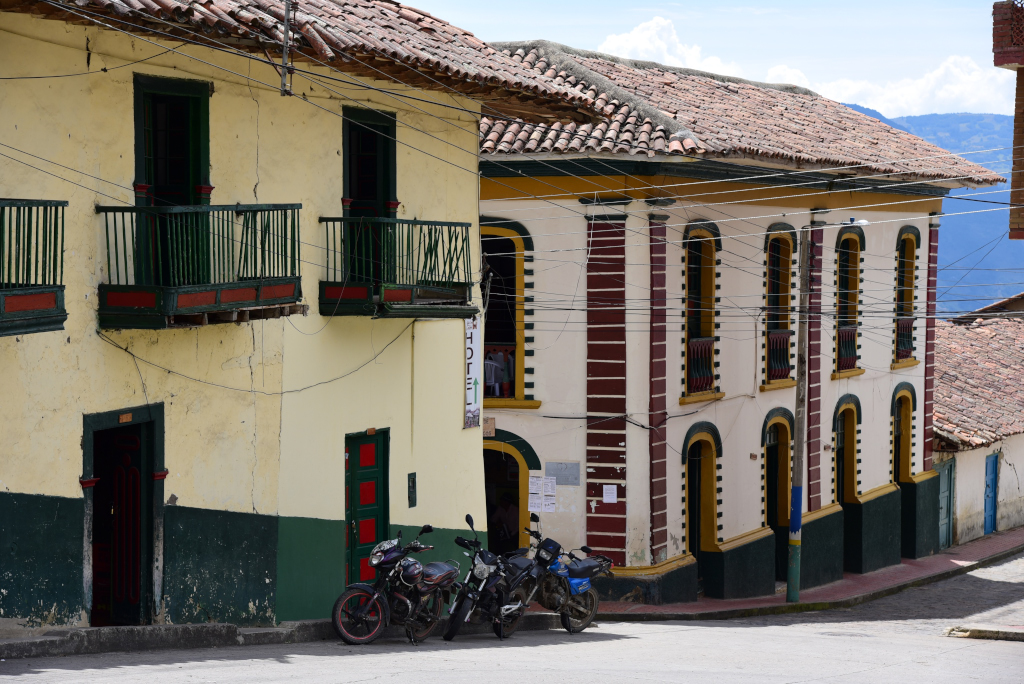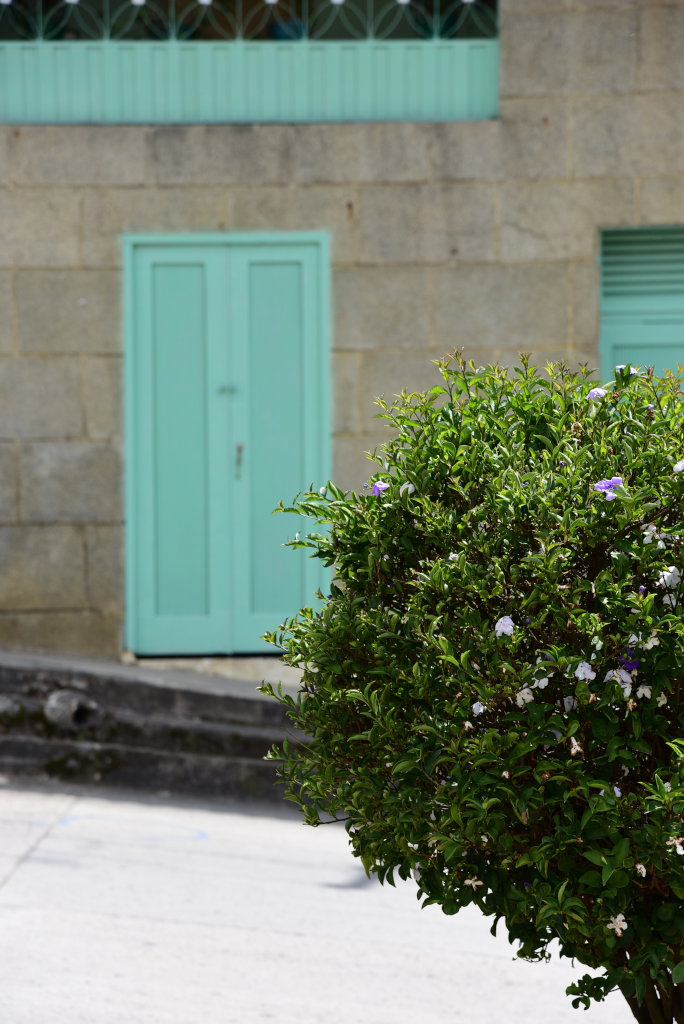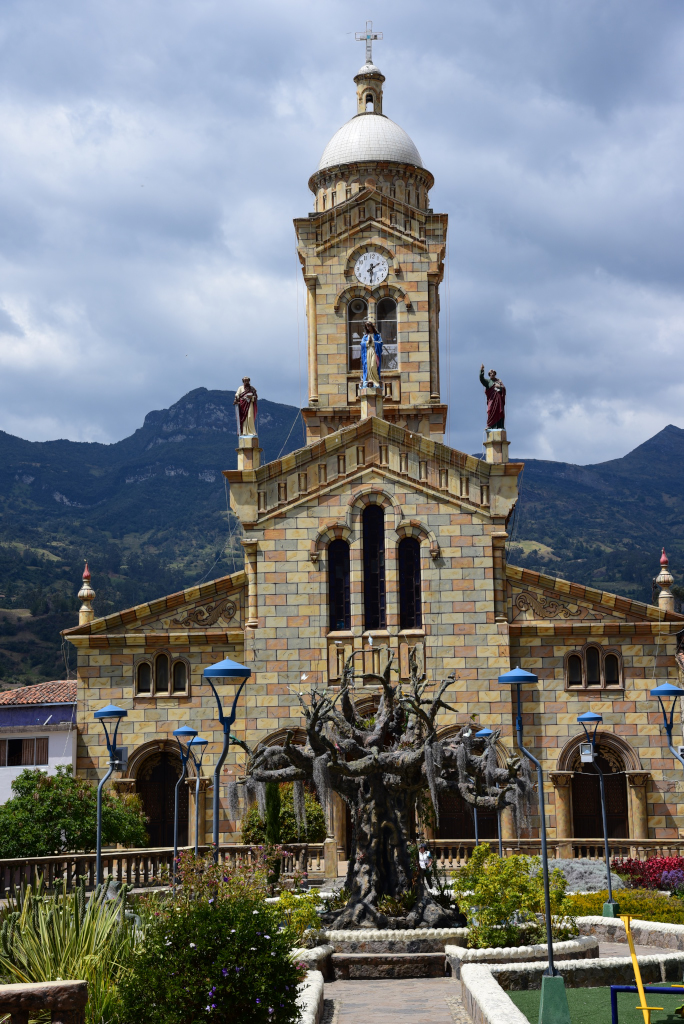February 22, 2018
While I don’t have to get up as early today as I did yesterday, a 6:30 am roll call is hardly that late, either. Perhaps the general sense of unease I have here is simply elevation-related. The object of the day is to catch the lechero – the milk truck that does a counterclockwise run from El Cocuy over La Capilla to the milk plant in Güicán. I cannot afford to miss the lechero, as there is no later alternative. If I miss it, I am stuck until the next day, or have to find some other, much more expensive option. If my pack was much lighter, I could just hop on the back of Jorge’s motorcycle.
Jorge’s wife appears some time after 7 am with her feisty young daughter, who has only recently learned how to walk, and now cannot sit still, as befits children of that age. So keeping Fernanda occupied while the mother cleans the kitchen following my scrambled egg breakfast is in order, the resultant conversation with the tiny girl swathed in colourful clothing and brandishing a walking stick quite hilarious. The woman tells me when the lechero pulls into the road to La Esperanza, and when it returns to La Capilla, it is finally time to leave the house for the last time.
We peruse the ground strewn with large rocks. She confirms that most people in the area are involved in dairy farming and also raising cattle for meat. Growing food profitably was largely wiped out with the Tratado de Libre Comercio with the United States that got passed in 2008, never mind the liberal amount of bloodshed that also came as a result. One of the few crops that even stands a chance nowadays is potatoes, although that is also becoming increasing untenable given the high cost of feed, because of course no crop is grown or livestock raised without a healthy dose of agrochemicals.
I recommend to Jorge’s wife that she should feel comfortable to include some degree of spice and flavour in foreigner’s food, given that other nationalities may not be as averse to some spiciness as the Colombians are, the love for bland food omnipresent here.
If there were an attraction to being in this remote rural environment, it would be the lack of traffic. Simply standing next to the lechero as the back is loaded with cases of empty beer bottles brings me back to the issue throughout Colombia: uncontrolled, unfiltered, black fumes pumping liberally from the exhaust pipe enough to ruin anyone’s day.
Carlos’ wife is intent on serving me something, anything, the constant push to make money unending this deep in this campo. But no, I assure her, I don’t think there will be enough time to have coffee. Her aquiline face is hard and unsmiling. The young men working on the lechero finish their breakfast, and yes, I can sit in front with the desultory young woman with the big face, shifting continuously in her seat as she makes one phone call after the other, playing with her hair, sitting between myself and the driver as we finally lumber off.
The long romantic gazes, hurried asinine chatter and loaded body language provide clear signals to not inject any touristic clichés into their possibly clandestine intimate moments together. Romance should be able to take place anywhere, so why not on a milk truck somewhere in the mountains in northern Boyacá?
The journey is painfully slow, as we stop every short distance for the young man at the back of the truck to collect the contents of milk canisters from the side of the road, even taking us into sideroads of the already rough dirt road circling above the two major towns in the region. More often than not, the owners of the small fincas stand by their milk canisters as the milk is collected, wearing the trademark monotone wool ponchos and fedoras, the typically older faces dark and lined, women with long, flowing hair, or tied back in braids.
A number of questions arise in my mind as the slow journey through the upper reaches of the Cocuy region transpires. What control is there over the quality of the milk being submitted, including how fresh the milk is, the extent to which it has been stored properly, is free of contagions, and has not been diluted?
I suspect none in all cases, and conclude that whatever product the milk factory produces can hence hardly be of the best or most reliable quality. As romantic and artisanal as the milk collection process may be, it is far from able to assure a high quality product, not that it should come as much of a surprise, considering the exceedingly mediocre quality of Colombian cheese.
As we slowly descend along the winding mountain roads to our presumptive destination, seeing Güicán in the distance is unnerving – because when it finally appears, it is far below us, deep at the bottom of a valley, underlining the vast vertical distances at play in this landscape.
The immediate impression of the small town pitched at the bottom of a vast hillside is not particularly impressive, although nearer the plaza, the town achieves more character. I leave the lechero and its driver to part ways with the love of his life while the young man at the back collects money from the townfolk draped in the predictable gear at the rear of the truck.
On the plaza, an elderly man assures me in very polite language that the hotel I am seeking is several blocks from the road radiating out from the bottom of the plaza. As I speak with him, who appears next to me with a huge smile, but Jorge, who apparently spent the night here after taking David to town. I can imagine he must have had a wild time on the town, but he shakes his head – but we should have a beer now! No, no, I never drink during the day, but will have a tinto.
I regale him with idle chatter and some the ideas I had plied his wife with, namely pushing tastier food and offering horseback riding. He has more clients today, so will be heading back in some fashion to La Capilla, a lot of the challenge of this business conduiting people from the lower-lying towns up to the base camps and onto the hiking trails. And just as his business continues, mine is finished, and I am on my way onto the next destination, which will hopefully be Bogotá.
The Posada El Colibri is absolutely charming, a small and cozy establishment at the end of a lower road radiating out from the plaza. The courtyard is chock-full of flowers and very pretty, the rooms radiating around the courtyard reasonably-sized, with high ceilings, with a shared bathroom, but the establishment is very clean, private, and the bed in the room is huge.
There is a kitchen I can prepare dinner in, a set of tables I can work from with the appropriate electrical plug, and in any case, the owner can get me an adapter and also offers to move one of the heavy wooden tables into the room. And she is the biggest attraction of the place, an absolutely charming, sweet woman who is a far cry from the provincial characters in the region above town who try and make an overpriced go in the hospitality business.
I speak to her at length about the attractions of Colombia and the quality of the services provided with respect to the national park. She concurs, adding details of issues that are points of discussion here, including the fact that the parks service obviously provides no further investment in the park for all the money they take out of. December brought admissions of roughly CAD $10,000 – where did this money go to?
What education do guides reflect to command 120,000 pesos per day, given that they don’t even speak English (the bulk of visitors being foreigners)? She asks me what guide I used. I tell her Jorge’s name, and her oblique reaction is expressive. ‘Are there issues with Jorge’ I ask nonchalantly? She sighs. ‘They’re peasants’, she responds, leaving me somewhat floored, but her few words said a lot.
The women’s description of the towns surrounding Güicán is providing me with motivation to spend a few more days in the area, and given the charm of the Colibri, and in particular her own charm, I may use Güicán as a base to explore the neighboring towns of Panqueba and Guacamayas. I doubt I would find accommodation along these lines in those towns, and in any case, don’t want to be hauling my heavy bags around for nothing. Apparently, Belén further towards Duitama is also supposed to be a very memorable place, but she needs to ask her husband as to the possibility of finding suitable accommodation there.
The most important business of the day: to find out what time the bus to Bogota leaves. The serious man in the Paz del Rio office at the bottom of the plaza assures me that the bus leaves at 10 am, is in Tunja about 6 pm, and Bogota two hours later. Fantastic! I guess …
An almuerzo in a hotel restaurant at the top of the plaza, the friendly staff uniformed in white attending to my needs in the rear room, the front dedicated to the retail area and a handful of locals drinking beer, the side profile of the intent but serene faces, the dark hair capped with the straw fedoras powerful photographic material. And the almuerzo is not just very good, much better than what I was fed in the base camps, but much less expensive. The women at the adjoining table discuss the costs of transporting goods here, which is hardly surprising, given how far away from any kind of urban centres a place like this is, and how terrible the roads are.
The exceedingly polite waitress tells me today is market day, although the market should be winding down. Colombian markets are very staid affairs, and the few remaining street vendors around the area that had hosted the market and even less than staid. I enter a combination butcher and produce shop to buy some vegetables, the bulk of fruit and vegetables remaining in the women’s bins essentially discards. But I have little choice, as there probably aren’t a lot of other places to be buying produce at this point.
Based on the discussion with the owner of the hotel, I am now thinking of staying here another day, as I may be able to take local buses to the neighboring towns of Guacamayas and Panqueba, some of the prettiest on the route towards Duitama. And so the sojourn in Boyacá continues. I would just have to find out when the bus to Soata leaves and returns in the afternoon, as I don’t want to get stuck in Panqueba for the night. And then I need to change rooms, as someone has reserved my room for tomorrow.
Now the ordeal of trying to find out what the bus service to Soata is becomes a challenge. I mistakenly ask the young woman at the empanada stand on the road radiating from top of the plaza where Paz de Rio bus company office is located, and she tells me in the bottom corner of the plaza. That absolutely can’t be, but I realize my mistake when I arrive back at the bottom of the plaza, only to be again distracted by a pretty young French Canadian woman who asks me if I need assistance.
I sure do! We talk about traveling in the area, but soon I am off again, to the Cootradil bus office. It is closed. But the tienda I stopped off earlier to have a coffee with Jorge is open for business, and the employees are sure their cousin will be back to open the office at a later point. But when exactly that will be is a big question. I harangue them for a specific time, but the resultant discussion becomes more of a soap opera without any tangible outcome of value.
Even from small interactions I am finding the people in Güicán warmer and more vibrant in interaction than further up in the mountains, where people are fine, businesslike and purpose-driven, but not necessarily as engaging. But then Colombians in this region are fairly courteous, not pushy, and don’t use vulgar language, which can’t be said about certain other Latin American folks …
The older woman who apparently does the wool work with her group of compañeras, whose work is displayed in the lobby, finally appears. She looks at my alpaca sweater, shaking her head, telling me that repairing the sweater will be difficult, as she doesn’t have that kind of wool. She examines the sweater carefully, looking at the number of holes in the sweater, telling me this is nonetheless a serious job, and will require a substantial effort. I ask her if she can do the work by the time I intend on leaving. ‘Well, tomorrow, but it will be a serious effort’.
And how much will she charge? Well, that is difficult to tell, as there is so much work to do, she continues, turning the garment over in her hands. What do I think I should be paying? After all, we travelers have piles of money. Sensing her game, I call her on a concrete price. She continues being evasive. I conclude by telling her the deal is off – she is not working on the sweater. She berates me and I tell her not to play games with me – I am not the person for that. But I will go to her taller and look at the wool garments she has for sale.
We walk up the street, the young soldiers looking at us in amazement. It takes some convincing on the part of the younger woman leaning out the window of the house to allow us to enter, and when we do, the woman is quickly rummaging through a big bag of woven articles. Woven caps, ponchos, bags, mitts, and a scarf, all pretty, functional, the wool not too harsh, a number of the caps just perfect, as well as a part of brown mitts and the wool scarf. I try on some of the caps, looking at myself in the motorcycle mirror. A deeply lined face with burned skin leers back at me.
Her compatriot, another wizen elderly woman wearing a poncho and woven fibre fedora so typical of locals confers with her. I negotiate with the original woman. The number they are asking for probably substantial in their eyes, but 50,000 pesos for the lot trivial for hand-woven wool clothing items. What? 54,000? No, keep the scarf then.
They give in, conceding to 50,000 and I give them 52,000. They calculate what each of the two receives, carefully turning the bills over in their hands. In the end whatever funds spent on these items are simply well-spent: this money is going into a family, and at the very least provides the women with an economic wherewithal in a very economically competitive family structure.
Now that it is dark, the central area of the town plaza comes alive under the glow of artfully placed lamps soccer and basketball, certainly a very productive and fun use of public space for the town’s young citizens.
I had the best of intentions in preparing a fresh, satisfying, and healthy dinner using the tins of tuna I had bought in El Cocuy as well as the vegetables I bought from the store earlier on, but the resultant mix is deplorable, replete with unripe and relatively flavourless ingredients. I certainly did not feel I was eating anything healthy.
I return to my room, change into more comfortable clothing, the room happily warmer than outside, flip open my laptop, and – no wifi. The consistently unreliable wifi in this country is something I will not miss …
